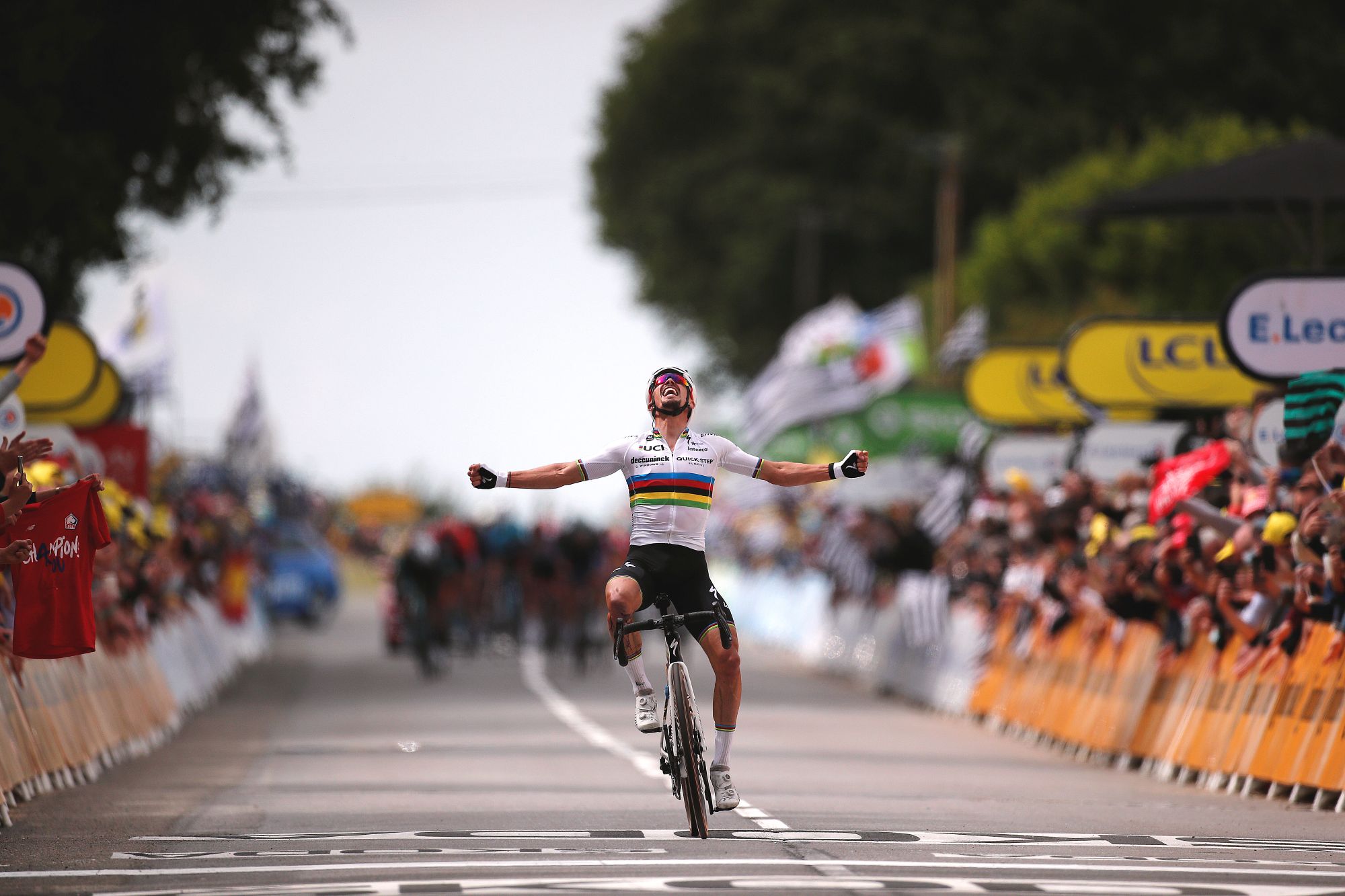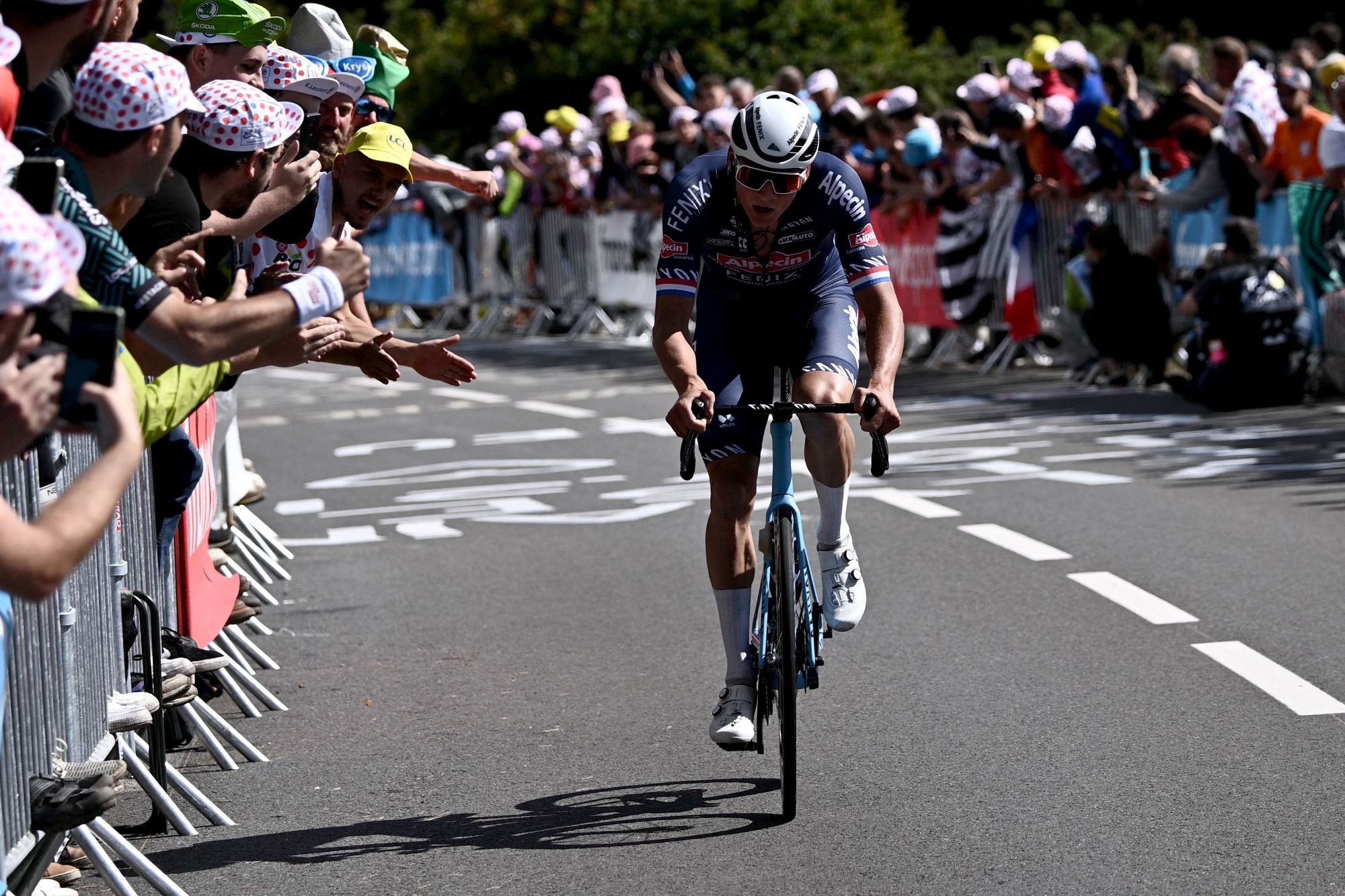
I always love the build up to the Tour de France each year. You can't beat the anticipation and excitement of the first few days of the race, it really compares to nothing else on the calendar. There are always so many interesting narratives to follow as the race gets going, long before any serious GC skirmishes unfold between the favourites for overall victory in Paris.
Ahead of the Grand Départ this year, the main discourse seems to be centred on whether or not the first week will even be worth watching. Friends, colleagues and social media users all seemed to be telling me the same thing: flat stage after flat stage after flat stage, what a snore fest. Fred Wright had heard the same views centred on the likely monotony of the opening parcours when I caught up with him last week. "I had the exact same initial thought as everyone else; I looked at the roadbook and thought there were a lot of flat, sprint type stages in the first ten days, but it really isn't like that,” he said.
On paper, it's easy to see why many have jumped to the conclusion that the opening week could be time to turn off the TV and get outside if you’re watching on from home, but you're guaranteed to miss the drama if you do.
While the opening day in Lille is almost completely flat, stages two, four, six and seven are stacked full of climbing, similarly to what you could expect in a hilly classic in the Ardennes, or elsewhere in Belgium. There are slight unclassified uphill finishes in Boulougne-sur-Mer, Rouen and Vire Normandie, before the well-known Mûr-de-Bretagne, which has seen flashes of GC action in the past, arrives on stage seven. These are not your run of the mill sprint stages and could be raced in the same all-guns-blazing style of the Amstel Gold Race, or a similar one day affair.

One of my favourite opening weeks to the Tour came in the Brittany region in 2021, starting with a road stage between Brest and Landerneau, finishing atop the Côte de la Fosse aux Loups after heading across five categorised climbs beforehand - two of the opening handful of stages have a similar parcours this time round. The end of the first stage four years ago played out with Julian Alaphilippe punching clear to a memorable win in the rainbow jersey, which he then switched for the maillot jaune at the end of the day. It was classic Alaphilippe: guts, panache and all in to the line once he took flight on the climb and left everyone else for dead - gripping viewing indeed.
Alaphilippe will be back this year and is one of several classics riders that will head into the opening week in good form and ready to strike. Mathieu van der Poel - the winner on the Mûr-de-Bretagne the last time the race visited the climb - is another. Wout van Aert will be back at the Tour too with the first few stages also suiting him to a tee.
To top it all off, the ever evolving Tadej Pogačar - the outright favourite for the win, yet again - will almost certainly have studied the opening week and sensed several opportunities to spring a surprise on Jonas Vingegaard before the more serious climbing comes. Pogačar can seemingly win on any terrain, as he proved on day one of the Critérium du Dauphiné, with no stages off limits to the three-time Tour winner. But if you fall into the camp of finding the Slovenian’s superiority tedious, then you needn’t despair, the presence of the previously named riders should ensure it’s not all one way traffic in the 26-year-old’s favour.
“I can see Tadej [Pogačar] maybe trying to gain bonus seconds on Jonas [Vingegaard]. That might mean he ends up winning a few of the stages but none of them are hard enough that other guys won't also be in the mix too," Wright added. “From what I can see in the first ten days, I think it's going to make for some f*****g amazing racing. I think it's going to be more of a spectacle than everyone thinks with Tadej not just walking all over everyone.”
You heard it there from Fred, and I agree with him too, the first week of the Tour de France will be many things, but it definitely won’t be boring.







